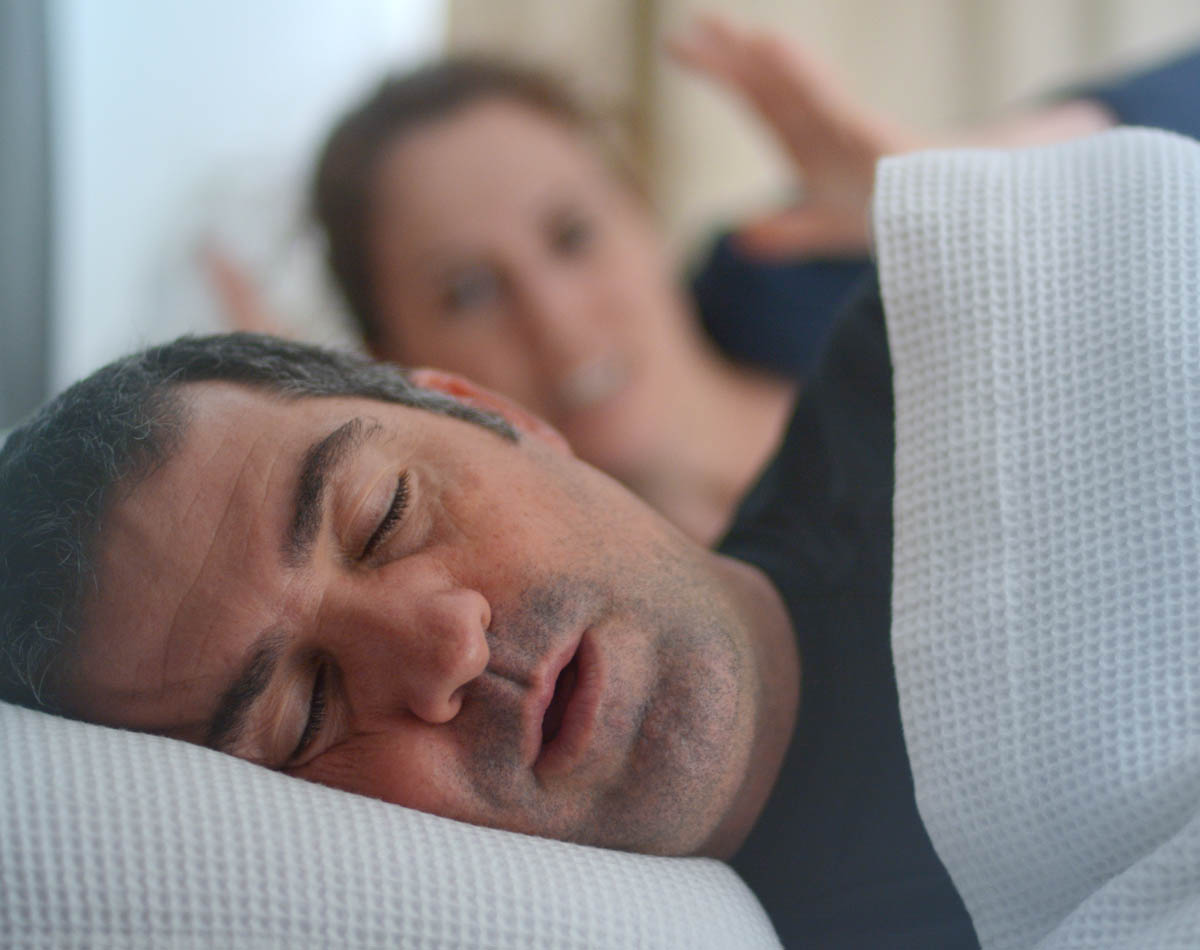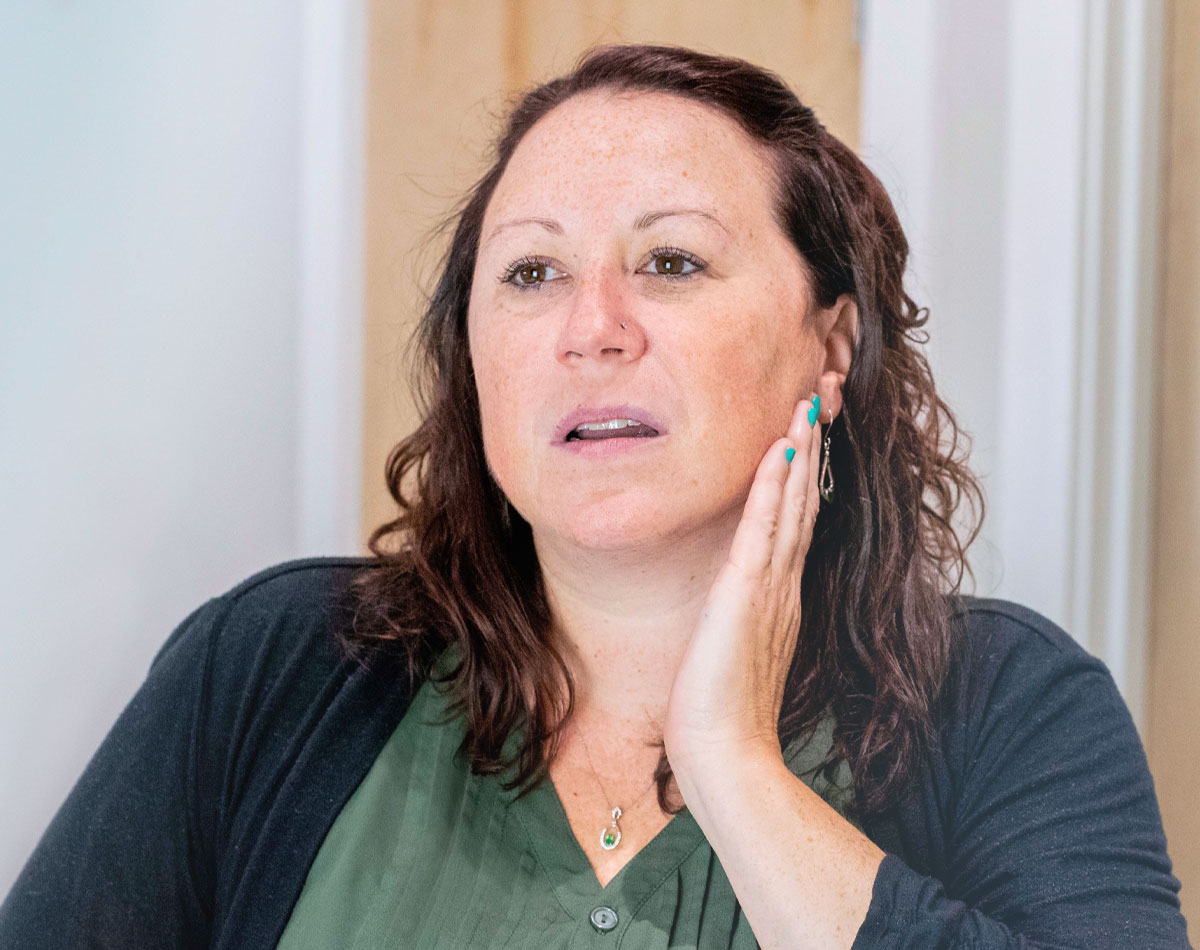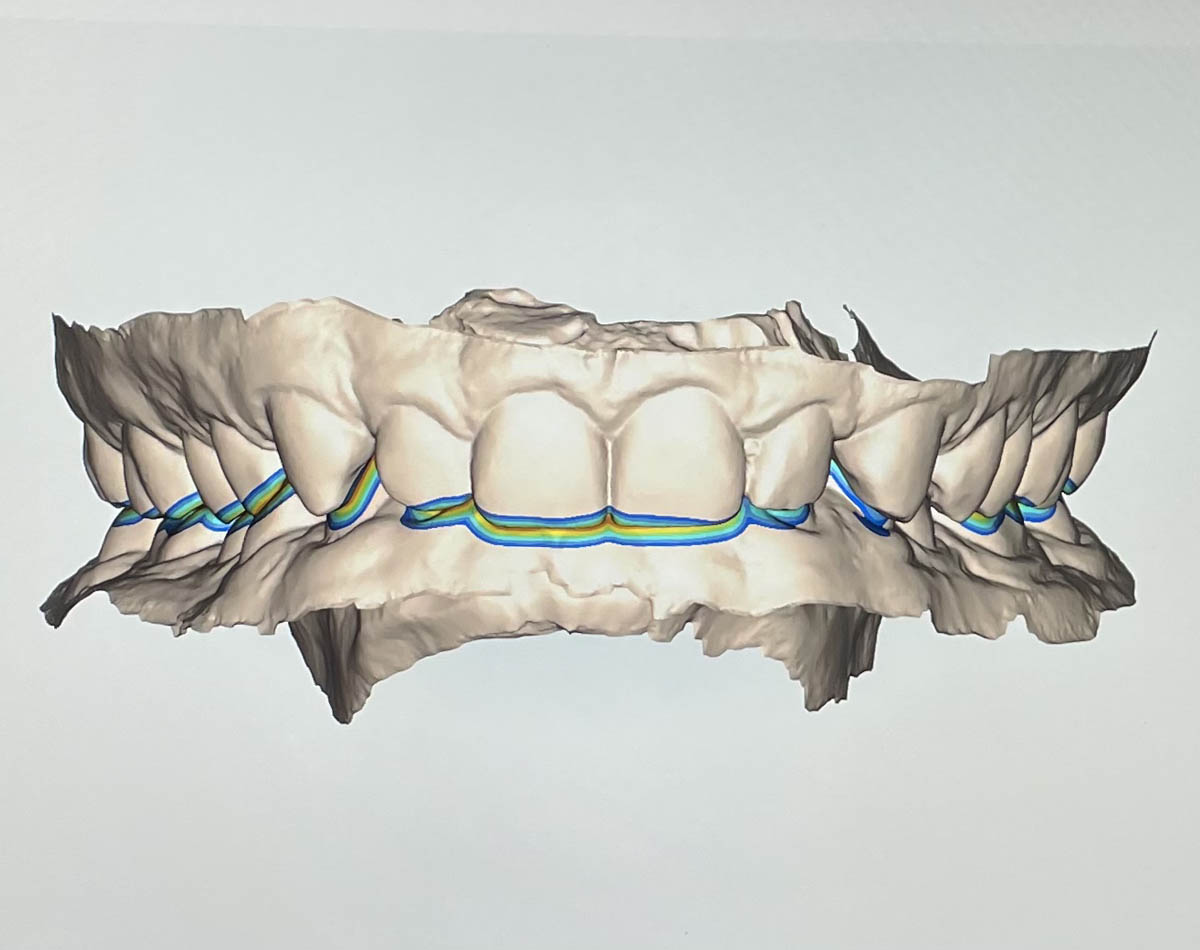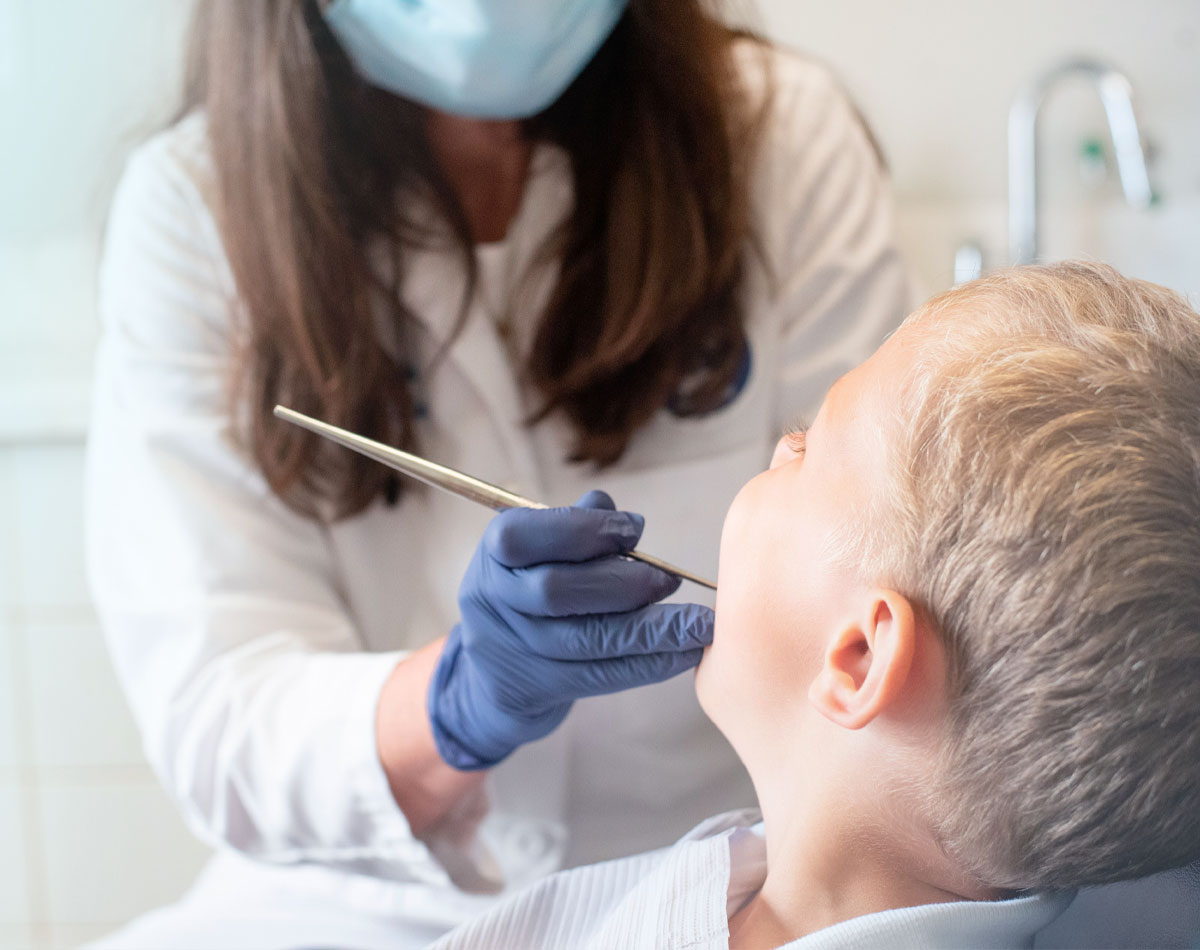How is Obstructive Sleep Apnea Diagnosed?
A polysomography test (PSG) typically consists of an all night recording test that measures sleep stages, heartbeat, breathing, electrocardiogram, blood oxygenation and arm and leg movements. There is also home sleep test (HST) which can be done at home and the data is analyzed by a board certified sleep physician.
If you have any of these signs, your provider may recommend additional testing for potential sleep apnea:
- Snoring more than 3 nights per week
- Loud, bothersome snoring
- Daytime sleepiness
- Lack of mental focus
- High blood pressure
- Frequent night urination
How is Obstructive Sleep Apnea Evaluated?
Your dentist will complete a comprehensive evaluation of the face, head and neck and the upper airway.
How is Obstructive Sleep Apnea Treated?
Your provider may recommend lifestyle changes such as maintaining a healthy weight, limiting alcohol and sedatives, avoiding sleeping on your back, reducing nasal congestion, surgical interventions, continuous positive pressure machines and mandibular advancement devices.
Continuous Positive Airway Pressure (CPAP) is a mask that seals the mouth or nose, which is connected to a device that provides air pressure to prevent the collapse of the airway, which allows for more effective nighttime breathing.
How is Sleep Apnea Treated Without CPAP?
Oral Appliance Therapy (OAT) can help for the treatment of sleep apnea. For this condition we use a mandibular advancement device, which is a mouth guard-like device worn only during sleep. The mandibular advancement device helps maintain an open airway by supporting the jaw in a forward position and preventing the airway from collapsing.
According to the Academy of Dental Sleep Medicine (AADSM), up to 50% of sleep apnea patients are not able to tolerate the CPAP. For many individuals, oral appliances are more comfortable to wear than a CPAP mask. Oral appliances are comfortable, portable, easy to wear and care for and no power is needed. It is important to remember that these are custom fit by a dentist and require adjustments over time to ensure maximum effectiveness.
AADSM recommends oral appliance therapy for people with mild to moderate obstructive sleep apnea. It can also be recommended for severe apnea patients unable to tolerate CPAP.
Side effects of oral appliances are generally minor. These include tooth discomfort, muscle discomfort, excessive salivation and occasionally joint discomfort. Most of these symptoms improve in a few weeks.
Useful resources:
Learn what the AADSM says about oral appliance therapy
Debunking the Myths of Oral Appliances for Obstructive Sleep Apnea
What types of sleep apnea are there?
Sleep apnea is a condition where your airway is blocked while you sleep, reducing the amount of oxygen delivered to your body and causing impaired sleep, which can lead to serious health risks. People with sleep apnea are often very sleepy during the day, may snore loudly and have episodes of gasping or choking, pauses in breathing and sudden awakenings.
There are three types of sleep apnea:
- Central sleep apnea is caused by a problem with the control of breathing in the part of the brain called the brainstem. This part of the brain is very sensitive to changes of carbon dioxide levels in the blood. When levels of carbon dioxide are high, it signals the muscles of breathing to work faster and breathe deeper, but in central sleep apnea the brainstem is less sensitive, so people tend to breathe less deeply and more slowly than normal. Opioids, high altitude, heart failure, and brain tumors can cause central sleep apnea.
- Obstructive sleep apnea is the most common type of sleep apnea, which caused by an obstruction of the airway during sleep. Sleep apnea occurs when breathings is interrupted for more than 10 seconds. These episodes can vary in frequency, occurring anywhere from 5 times per hour to more than 30 times per hour.
- Mixed apnea is a combination of both obstructive sleep apnea and central apnea.
Can I have sleep apnea if I don't snore?
Most people that suffer from sleep apnea snore, but there is a small percentage of people with sleep apnea that that do not snore. If you feel tired and are sleepy during the daytime, you should consider an evaluation for sleep apnea.
Can women get sleep apnea?
Women experiencing fatigue and daytime sleepiness should consider evaluation and testing for sleep apnea. Although men tend to suffer from sleep apnea more often than women, the number of women suffering from sleep apnea increases around menopause. Female hormones can protect against this problem, but as they decline at menopause the risk of sleep apnea increases and problems associated with sleep apnea can worsen.
Payment options for sleep apnea treatment
We understand that sometimes your ideal treatment plan may not fit your budget. That’s why Worcester Sleep Dentistry offers affordable third-party payment plans with deferred interest through CareCredit or payment over time with Sunbit. This way you can get the treatment you need, when you need it, and pay over time with our convenient payment options.
Sleep Dentistry Services
Get In Touch With Us
Call Us
(508) 731-4479
Email us
Book An Appointment
Click the button below to book an appointment online:
Other Sleep Dentistry
Disorders
Snoring
Snoring can be a symptom of obstructive sleep apnea, but not all people who snore have obstructive sleep apnea. Find out the difference.
TMJ Disorders
TMD/TMJ Disorders is a group of related conditions affecting the jaw joint, the muscles involved with chewing, and associated structures.
Bruxism
Bruxism is the habit of clenching and grinding your teeth. Bruxism can occur during sleep and during periods of stress and tension.
For Children
If left untreated, obstructive sleep apnea in children can result in problems such as behavioral issues and cardiovascular problems.






